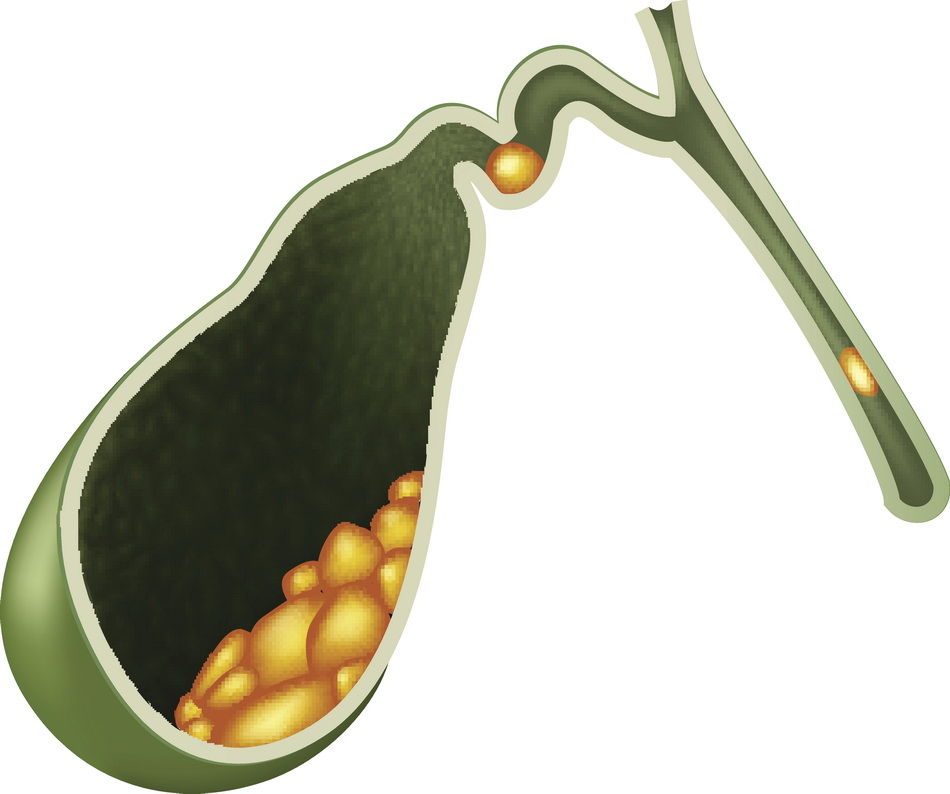GallbladderGallbladder related health problems
|  |
Gallstones related problems
What is a gallbladder?
The gallbladder is a small sac-like organ in the upper right part of the abdomen, attached to the liver. It stores bile which helps with digestion of food.
What are gallstones?
Gallstones are solid particles that form from bile, cholesterol and bilirubin within the gallbladder.
How common are gallstones?
Approximately 10-15 % of the general Australian population has gallstones, although they often do not show any symptoms. The incidence increases with age and can account for about 30% of population over 50 years of age.
Should gallstones be treated?
Most people with gallstones who do not have symptoms will never need treatment. Your doctor may recommend treatment if gallstones are causing the following symptoms:
- pain, typically after meals (biliary colic)
- complications such as gallbladder infection(cholecystitis)
- jaundice or pancreatitis due to stone migration
- if you are immune suppressed as a result of medications or diabetes, you may have a higher risk of gallbladder infection. In such situations your surgeon may recommend removal of your gallbladder.
How are gallstones treated?
Your doctor may recommend surgery to remove your gallbladder (cholecystectomy). This is usually performed laparoscopically (key-hole). However in uncommon situations the operation may need to be converted to open technique with a surgical cut near the rib cage on the right side.
Are there health risks after removal of gallbladder?
The gallbladder is not essential for life, and gallbladder removal does not affect your ability to digest food. Generally the digestive system returns to normal within few weeks. Please discuss other potential complications associated with the operation with your surgeon.
Can gallstones be treated without surgery?
Medications to dissolve gallstones are expensive and may take months or years of treatment to dissolve the gallstones and are unpredictable. Further, the gallstones are likely to re-form again if treatment is stopped. The gold standard of treatment is surgical removal of gallbladder with the stones.
What happens if my gallstones are not treated?
Most people do not need treatment if the gallstones do not cause any symptoms. However if your doctor believes that cholecystectomy is necessary, please discuss the options with your surgeon. If your gallbladder removal is indicated but you decide against it, you risk complications such as gallbladder infection, gallstone migration or pancreatitis.
Gallbladder polyps
What are gallbladder polyps?
Gallbladder polyps are abnormal growth of tissue protruding from the lining of the gallbladder.
How are polyps diagnosed?
Gallbladder polyps are usually diagnosed by ultrasound scans as they do not produce symptoms in early stages.
Should I worry about gallbladder polyps?
Majority of gallbladder polyps are not dangerous. However a small proportion of polyps can progress to gallbladder cancer.
It is worth having a consultation with your surgeon if the
- polyps are over 5mm;
- enlarging in size;
- or if you have a family member with liver or gallbladder cancer
How can gallbladder polyps be treated?
If the gallbladder polyps are small (5 -10mm) – surveillance or surgery.
If the polyps are greater than 10mm – surgery is recommended (cholecystectomy) as this will prevent the polyps progressing to cancer.
| Adenomyosis of gallbladder Gallbladder adenomyosis is a benign alteration of the gallbladder wall characterized by a gallbladder wall thickening containing small bile-filled cystic space. This condition usually does not require surgery, how ever if you have pain, please consult your general practitioner. | Acute pancreatitis Acute pancreatitis is inflammation of the pancreas gland. Severe pancreatitis can be life threatening and you should seek urgent medical treatment. Gallstones and alcohol abuse are the main causes of acute pancreatitis. Every patient with acute pancreatitis who is diagnosed to have gallstones, it is recommended to have the gallbladder removed to prevent recurrent episodes. | Gallbladder cancer This is a rare condition that usually requires surgery and chemotherapy. Early stages of gallbladder cancers can however be treated with cholecystectomy alone. |